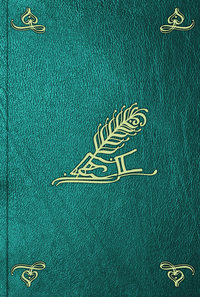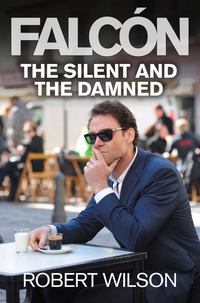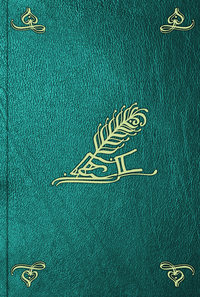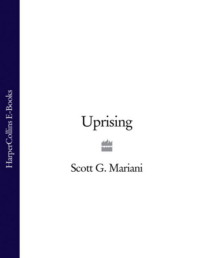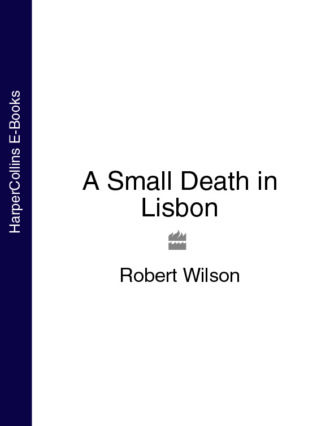
Полная версия
A Small Death in Lisbon
Another car came down Nürnbergerstrasse, the sleet diagonal through the cracks of light. Felsen checked the two blocks of Reichsmarks in his inside pockets, left the window and went down to join it.
SS-Brigadeführers Hanke, Fischer and Wolff and one of the other candidates, Hans Koch, were sitting in the mess taking drinks served by a waiter with a steel tray. Felsen ordered a brandy and sat amongst them. They were all commenting on the quality of the mess cognac since they’d occupied France.
‘And Dutch cigars,’ said Felsen, handing round a handful to all the players. ‘You realize how they used to keep the best for themselves.’
‘A very Jewish trait,’ said Brigadeführer Hanke, ‘don’t you think?’
Koch, still as pink-faced as he had been at fourteen, nodded keenly through the smoke of his cigar which Hanke was lighting for him.
‘I didn’t know the Jews were involved in the Dutch tobacco industry,’ said Felsen.
‘The Jews are everywhere,’ said Koch.
‘You don’t smoke your own cigars?’ asked Brigadeführer Fischer.
‘After dinner,’ said Felsen. ‘Only cigarettes before. Turkish. Would you like to try one?’
‘I don’t smoke cigarettes.’
Koch looked at his lit cigar and felt foolish. He saw Felsen’s cigarette case on the table.
‘May I?’ he said, picking it up and opening it. The shop’s name was stamped on the inside. ‘Samuel Stern, you see, the Jews are everywhere.’
‘The Jews have been with us for centuries,’ said Felsen.
‘So was Samuel Stern until Kristallnacht,’ said Koch, sitting back satisfied, synchronizing a nod with Hanke. ‘They weaken us every hour they remain in the Reich.’
‘Weaken us?’ said Felsen, thinking this sounded like something verbatim from Julius Streicher’s rag, Der Stürmer. ‘They don’t weaken me.’
‘What are you implying, Herr Felsen?’ said Koch, cheeks reddening.
‘I’m not implying anything, Herr Koch. I was merely saying that I have not experienced any weakening of my position, my business, or my social life as a result of the Jews.’
‘It is quite possible you have been . . .’
‘And as for the Reich, we have overrun most of Europe lately which hardly . . .’
‘. . . possible you have been unaware,’ finished Koch shouting him down.
The double doors to the mess thumped open and a tall, heavy man took three strides into the room. Koch shot off his chair. The Brigadeführers all stood up. SS-Gruppenführer Lehrer flicked his wrist at waist height.
‘Heil Hitler,’ he said. ‘Bring me a brandy. Vintage.’
The Brigadeführers and Koch responded with full salutes. Felsen eased himself slowly out of his chair. The mess waiter whispered something to the dark, lowered head of the Gruppenführer.
‘Well, bring me a brandy in the dining room then,’ he shouted.
They went straight into dinner, Lehrer fuming because he’d wanted to stand in front of the fire, warming his arse, with a brandy or two.
Koch and Felsen sat on either side of Lehrer at the dinner. Over a nasty green soup Hanke asked Felsen about his father. The question Felsen had been waiting for.
‘He was killed by a pig in 1924,’ said Felsen.
Lehrer slurped his soup loudly.
Sometimes he used a pig, other times a ram. What he didn’t do was tell the truth, which was that as a fifteen-year-old, Klaus Felsen had found his father hanging from a beam in the barn.
‘A pig?’ asked Hanke. ‘A wild boar?’
‘No, no, a domestic pig. He slipped over in the pen and was trampled to death by a sow.’
‘And you took over the farm?’
‘Perhaps you know this already, Herr Brigadeführer. I worked that farm for eight years until my mother died. Then I sold it and joined the Führer’s economic miracle and I’ve never looked back. It’s not something I enjoy doing.’
Hanke sat back after that, shoulder to shoulder with his protégé who smiled pinkly. Lehrer slurped on. He knew it all anyway. Except for the pig, of course. That had been interesting, not true, but interesting.
The soup bowls were removed and replaced by plates of overcooked pork with boiled potatoes and a sludge of red cabbage. Lehrer only ate it for something to do while Koch gave him the party line. He shovelled food faster and faster into his face. In a momentary lull he leaned over to Felsen and said:
‘Not married, Herr Felsen?’
‘No, Herr Gruppenführer.’
‘I’ve heard,’ he said, nibbling at a hangnail, ‘that you have a reputation with women.’
‘Do I?’
‘How does a man who’s never been south of the Pyrenees speak Portuguese?’ asked Lehrer, valuing his earlobe with thumb and finger. ‘And don’t tell me that that’s what they’re teaching you down in Swabia these days.’
Lehrer arched his eyebrows in a parody of innocence. Felsen realized that Susana Lopes had moved in higher circles than even he’d known about.
‘I used to go riding with a Brazilian around the Havel,’ he lied, and Lehrer’s stomach grunted.
‘Horses?’ he asked.
After dinner they moved into an adjoining room. They each bought a hundred RM of chips and sat at a green baize table. The waiters moved a wooden trolley with drinks and glasses alongside, served brandies and left. Lehrer loosened off his tunic and drew on the cigar Felsen had given him, blowing the smoke on to the ember.
The light above the table, stratified by smoke, lit only the players’ faces. Koch, even pinker now with the wine and brandy. Hanke with hooded unreadable eyes, the shadow of his dark beard already showing through. Fischer with pouches under his eyes and his skin taut and scraped raw as if he’d been half the night in a blizzard. Wolff, blonde and blue-eyed, impossibly young for a Brigadeführer, in need of a duelling scar to lend experience to the face. And Lehrer, the big man, with jowls fully formed, hair grey on the wings, dark eyes, wet and glistening with the anticipation of joy and further corruption. If Eva had been there, thought Felsen, she’d have told him that this was a man who liked to spank.
They played. Felsen lost consistently. He dumped hands which had any excitement in them and bluffed with no will to back it up. Koch lost flamboyantly. They both bought more chips and transferred them to the SS officers who showed no inclination for the process to stop.
Then Felsen started to win. There were comments about the cards turning. Hanke and Fischer were quickly burned out. Koch was stripped clean, going down for 1600 RM. Felsen concentrated on Wolff and began to lose to the man consistently on bluffs. Felsen was down to 500 RM when Lehrer cleaned Wolff out with four of a kind to a full house. Wolff looked as if he’d been speared to his chair. Lehrer was enormous behind his stacks of chips.
‘You might wish to replenish your stocks if you want to take me on,’ said Lehrer. Felsen poured himself a brandy and sucked on his cigar. Lehrer beamed. Felsen reached into his pocket and took out 2000 RM.
‘Will that be enough?’ he asked and Lehrer licked his lips.
They played for an hour with Lehrer, now stripped to his shirt, losing lightly. Wolff, out of the light, watched the game with the intensity of a falcon. Hanke and Koch colluded on the sofa while Fischer slept noisily.
Just after 1.30 a.m. Lehrer declined to draw on a hand. Felsen thought for a full three minutes and drew two which he looked at and laid face-down on the table. He moved 200 RM into the centre of the table. Lehrer matched him and raised him 400 RM. Felsen likewise matched and raised. They stopped and checked each other. Lehrer was trying to find the light, the narrow crack, the hairline fissure that was all he needed. Felsen knew then that his strongest card wasn’t face-down on the table in front of him and allowed himself a tiny smile in the pit of his stomach. It was enough for Lehrer who matched Felsen and raised him 1000 RM. Felsen moved his remaining 500 RM into the centre and drew a block of 5000 RM out of his pocket and threw it on top.
Wolff was up to his chest at the table burning holes in the green baize. Hanke and Koch shut up. Fischer stopped snoring.
Lehrer smiled and drummed the table with his fingers. He asked for a pen and paper. He pushed his remaining 2500 RM into the centre and wrote a note for 2500 RM.
‘I think we should see each other now,’ he said.
‘You first,’ said Felsen, who’d have been happy to go on.
Lehrer shrugged. He turned over four aces and a king. Koch was gritting his teeth with fury at how Felsen had bought the job from under him.
‘Well, Felsen,’ said Wolff.
Felsen turned over his draw cards first. The seven and ten of diamonds. Wolff sneered but Lehrer leaned forward. The next two cards were the eight and nine of diamonds.
‘I hope that last one’s not a jack,’ said Lehrer.
It was the six.
Lehrer tore his tunic off the back of his chair and left the room.
Perhaps, thought Felsen looking at the deflated men leaving around him, that had been a step too far. Beating four of a kind with a low straight flush – that could be seen as humiliation.
The sleet had turned back to snow. Then it became too cold for snow and the air froze still. The black ruts in the white roads iced over and the staff car taking Felsen back to Berlin fish-tailed its way up Nürnbergerstrasse.
Felsen tried to tip the driver, who refused. He limped slowly up the stairs to his apartment. He let himself in, threw off his coat and hat and slapped his money on the table. He poured himself a brandy, lit a cigarette and, despite the cold, stripped off his jacket and hung it off the back of a chair.
Eva was asleep in a wool coat, a blanket over her legs, on the chaise longue. He sat in front of her and watched her eyes fluttering under their lids. He put his hand out to touch her. She woke up with a small cry that sounded as if it came from the night rather than her throat. He took his hand back and gave her a cigarette.
She smoked and stared at the ceiling and stroked his knee without thinking about it.
‘I was dreaming.’
‘Badly?’
‘You’d left Berlin, I was on my own at a U-bahn station and where the tracks should have been there were crowds of people looking up, as if they were expecting something of me.’
‘Where’d I gone?’
‘I don’t know.’
‘I doubt I’ll be going anywhere after tonight.’
‘What did you do?’ she asked, mother to small boy.
‘I cleaned them out.’
Eva sat up.
‘That was stupid,’ she said. ‘You know Lehrer . . . he’s not so nice. You remember those two Jewish girls?’
‘The ones who got washed up in the Havel . . . yes, I do, but that wasn’t him was it?’
‘No, but he was there. He was the one who’d ordered the girls.’
‘He knew about me too,’ said Felsen sipping the brandy. ‘He knew about me and Susana Lopes. How do you think he knew that?’
‘It’s the nature of the regime isn’t it?’
‘It was years ago.’
‘It was a totalitarian state before the war too,’ she said, swinging her knees round to between his legs and taking the brandy glass from him. ‘Is that why you beat him at cards?’
‘What do you mean?’ he asked, annoyed to have sounded defensive.
‘You were jealous, weren’t you? I can tell,’ she said. ‘Of him and Susana.’
Her hands found the front of his trousers and rubbed the thick material.
‘I beat him because I didn’t want to leave Berlin.’
‘Berlin?’ she asked, toying with him now.
She undid the front of his trousers and unbuttoned his fly. He slipped out of his braces and she tugged his trousers down to his thighs and yanked his undershorts out and over his erection.
‘Not just Berlin,’ he said, and gasped as her hands enclosed the stem of his penis.
‘Sorry,’ she said, without meaning it.
He swallowed. His penis felt extremely hot in her small, cold, white hands. She moved her fists up and down, painfully slowly, without taking her eyes off his face. His neck juddered and he pulled her forward on to his lap, pushing the coat open and drawing her dress up over her stocking tops. He tugged the gusset of her knickers aside and she had to grab at the arms of the chair to save herself from falling. She found him and lowered herself down on to him feeling the slow burn creeping into her.
At dawn the heavy black curtains were crushing the iron-grey light back outside. The white linen bedclothes were stiff with cold. Felsen’s head came off the pillow at the second crash, which came with the noise of a length of wood splintering. Boots thundered over wooden floors, something fell and rolled. Felsen turned, his shoulders hardened by the frost, his brain grinding through the gears, drink and tiredness confusing the double declutch required. The two huge panes of mirrored glass in the double doors of the bedroom shattered. Two men in calf-length black leather coats stepped through the door frames. Felsen’s single thought – why didn’t they just open the doors?
Eva came out of sleep as if she’d been stabbed. Felsen slid out of the bed and crouched naked. A leather heel from a black boot hit him on the side of his cloth-filled head and he went down.
‘Felsen!’ roared a voice.
Felsen murmured something to himself, things slopping in his head, the room full of Eva shouting hobnail German.
‘You! Shut up!’
He heard a dull smack, something delivered with a closed fist, and then quiet.
Felsen sat with his back against the bed, his genitals shrinking back from the cold polished wooden floor.
‘Get dressed!’
He stumbled into clothes. Blood trickled, warm behind his ear. The men took a shoulder each. They crunched over the broken glass, opening the doors this time, polite on the way out.
A green padlocked van was the only colour in a crevasse of snow-covered gunmetal buildings, whose street was frozen into arctic maps of white, fringed grey and black. The door of the van opened. They heaved Felsen into the darkness and pant of fear.
Chapter II
16th February 1941, 8 Prinz Albrechtstrasse, RHSA Headquarters.
The van doors opened to an inarticulate shriek from an armed soldier. Felsen took a sideswipe from a rifle butt on the shoulder. He lowered himself into the ankle-deep black slush and staggered up the steps out of the courtyard into the grim stone Gestapo building. He was one of four prisoners. They were led straight down into the cellars, into a long narrow corridor with cells on either side. Most of the light came from an open door from which came the moaning of a man post-coitus. The two men ahead of Felsen looked into the light and switched their heads away fast. A man in shirt sleeves wearing a stiff, grossly stained, brown apron was attending to a man strapped into a chair.
‘Shut the door, Krüger,’ he said, in a tired, long-suffering voice. A man with a full day’s work ahead of him and none of it easy.
The corridor darkened with a bang to a sodium-lit gloom. Felsen was put in a stinking unlit cell with a pallet and full bucket for company. He put his hands up against the damp wall and tried to breathe away the cold clamminess he felt on the inside of his rib cage. He had gone too far. He knew that now.
They came for him after several hours, took him past the shut door of the horror room up to the first floor and into an office with tall windows in which a man in a dark suit sat at a desk cleaning his glasses for an absurdly long time. Felsen waited. The man told him to sit.
‘Do you know why you’re here?’
‘No.’
The man fitted his face into the glasses and opened a file which he tilted away from Felsen, who stared at the precision of the man’s parting.
‘Communism.’
‘You’re joking.’
The man looked up but didn’t comment.
‘You are pro-Jewish.’
‘Don’t be ridiculous.’
‘You also knew a woman called Michelle Duchamp.’
‘That is true.’
‘My colleagues have been talking to her for a week in Lyons. She’s been remembering things about the time she spent in Berlin back in the thirties.’
‘Before the war . . . when I knew her, you mean.’
‘But not before politics. As you know, she’s been working for the French Resistance movement for over a year.’
‘I’m not political and no, I didn’t know that.’
‘We are all political. Party member number 479,381, Förderndes Mitglied to SS unit . . .’
‘You know as well as I do that there is no life outside the Party.’
‘Is that why you joined, Herr Felsen? To grow your business? Improve your prospects? Just hitching a ride on us are you, while the going’s good?’
Felsen sat back from the desk and looked out of the window at the bleak Berlin sky, realizing that this could happen to anybody and did . . . every day.
‘That’s a nice jacket,’ said the man. ‘Made by your tailor . . .’
‘Isaac Weinstock,’ said Felsen. ‘That’s a Jewish name in case . . .’
‘You know it’s forbidden for Jews to buy yarn.’
‘I bought the cloth for him.’
It was snowing again. He could just make out the grey flakes against the grey sky through the grey glass over the grey filing cabinet.
‘Olga Kasarov,’ said the man.
‘What about her?’
‘You know her.’
‘I went to bed with an Olga . . . once.’
‘She’s a Bolshevik.’
‘She’s a Russian, I do know that,’ said Felsen, ‘and anyway, I didn’t know you could catch communism from fucking.’
That seemed to snap something inside the man who stood up and tucked the file under his arm.
‘I don’t think you understand your situation very well, Herr Felsen.’
‘You’re right, I don’t. Perhaps you would be good enough . . .’
‘Some rehabilitation is, perhaps, in order.’
Felsen suddenly felt the runaway vehicle he was on lurch down a steeper slope.
‘Your investigation . . .’ he started, but the man was moving towards the door. ‘Herr . . . Herr . . . wait.’
The man opened the door. Two soldiers came in and heaved Felsen to his feet and took him out.
‘We’re sending you back to school, Herr Felsen,’ said the dark-suited man.
They took him back down to his cell where they kept him for three days. Nobody spoke to him. They gave him a bowl of soup once a day. His bucket wasn’t emptied. He sat on his pallet surrounded by his piss and faeces. Screams would occasionally penetrate his darkness, sometimes faint, other times horrifically close and loud. Terrible beatings took place in the corridor outside his cell. More than one man called for his mother under the crack of his door.
He spent the hours and days preparing himself. He tutored his brain into a state of excessive politeness and his demeanour into one of submissive timidity. On the fourth day they came for him again. He was stinking and feeble with fear. They didn’t take him to the horror room and they didn’t take him upstairs for another meeting with the man in the dark suit. They handcuffed him and took him straight out into the courtyard, the snow falling in soft large flakes but packed hard underfoot by boots and tyres. They loaded him into an empty van with a large and still tacky stain on the floor. The doors shut.
‘Where’s this going?’ he asked the darkness.
‘Sachsenhausen,’ said the guard outside.
‘What about the law?’ said Felsen. ‘What about the process of law?’ The guard hammered on the side of the van. The driver slammed it into gear and sent Felsen cannoning against the doors.
Eva Brücke sat in her office in Die Rote Katze smoking cigarette after cigarette and trickling more brandy into her coffee cup until it was all brandy, no coffee. The swelling on her face had gone down with the daily application of a little snow and she was left with a blue and yellow mark which disappeared under foundation and the white powder she used.
The door to her office was open and she had a clear view of the empty kitchens. She heard a light tapping on the back door and stood to answer it. At that moment the telephone went off louder than a stack of china hitting the floor. She jumped and steadied herself. She didn’t want to pick it up, but the noise was shattering and she snatched it to her ear.
‘Eva?’ asked the voice.
‘Yes,’ she said, recognizing it. ‘This is Die Rote Katze.’
‘You sound tired.’
‘It’s a job with long hours and not much opportunity for rest.’
‘You should take some time off.’
‘Some “Strength through Joy” perhaps,’ she said, and the caller laughed.
‘Do you have anybody else with a sense of humour?’
‘It does depend on who’s telling the jokes.’
‘No, well, I mean . . . someone who appreciates fun. Unusual fun.’
‘I know people who can still laugh out loud.’
‘Like me,’ he said, laughing out loud to prove it.
‘Perhaps,’ she said, not laughing with him.
‘Could they come and see me for an evening of amusement and wonder?’
‘How many?’
‘Oh, I think three is a merry number. Would three be all right?’
‘Could you drop by and give me a better idea of what . . .?’
‘It’s rather inconvenient at the moment.’
‘You know, I worry after . . .’
‘Oh, no, no, no, don’t be concerned. The theme is food. What could be more joyous than food in this day and age.’
‘I’ll see what I can do.’
‘Thank you, Eva. Your service is appreciated.’
She hung up and went to the back door. The small, enclosed man she’d been expecting was there in the snow-packed alley. She let him in. He shook the snow off his hat and stamped his boots clean. They went to the office. She pulled the telephone plug out of the wall.
‘Do you drink, Herr Kaufman?’
‘Only tea.’
‘I have some coffee.’
‘Nothing, thank you.’
‘What can I do for you?’
‘I was wondering if you’d have room for two visitors?’
‘I told you . . .’
‘I know, but it’s an emergency.’
‘Not here.’
‘No.’
‘How long?’
‘Three days.’
‘I might be going away,’ she said, off the top of her head, inspired by the telephone call.
‘They can manage on their own.’
‘I told you before that this would be . . . it would have to be . . .’
‘I know,’ he said, folding his hands into his lap, ‘but the circumstances are unusual.’
‘Won’t they always be unusual?’
‘Perhaps you’re right.’
She lit a cigarette and sighed the smoke out.
‘When are they coming?’
Sachsenhausen was an old barracks turned concentration camp thirty kilometres north-west of Berlin in Oranienberg. Felsen knew of the place only because he’d taken on a political and two Jews to sweep the factory floors. They’d been released from there in 1936 just before the Olympics. They didn’t have to say anything about the conditions in the KZ, the two tendons at the backs of their necks stood out sharply from under their shaved heads – they were fifteen kilos underweight minimum.
It was an unnerving drive on snow-covered roads from Berlin. The van skidded and slewed across the road. At Sachsenhausen he heard the gates opening and a thunderous pummelling on the panels of the van. The van seemed to run a gauntlet for a hundred metres until Felsen’s nerve was completely shattered. Then silence and only the creak of tyres on snow. The van stopped. The wind moaned. The driver coughed in his cab. The doors opened.
Felsen got to his feet, felt the stickiness on the edges of his hands which were stained russet from the drying blood on the floor. He stumbled to the back of the van. Outside was a vast white expanse with just two lines across it from the wheels of the van. Far off, perhaps two hundred metres away, it was difficult to judge over the snow’s squinting glare, were trees and buildings.
The van took off, throwing him out on to the ankle-deep snow. The doors flapped and banged shut and he put his hands up over his head, confused by the sudden noise. At the edge of the enormous flat expanse of snow-covered ground a figure stood at ease. Felsen nosed forward, eyes creased shut. The figure, grey and indiscernible, didn’t move. Felsen flinched at a noise behind him, the sound of sharp metal slicing through snow. He whipped round. There were three men in black SS greatcoats and helmets. The hems of their coats rested on the surface of the snow. One carried a wooden club, the next a spade which he swung in an arc, the blade singing against the crystalline snow. The third held a metre length of steel cable, frayed at the end. Felsen looked back to the figure, as if he might help. The figure had gone. He got to his feet. The men were eyeless beneath their helmets. Felsen’s legs were shaking.




